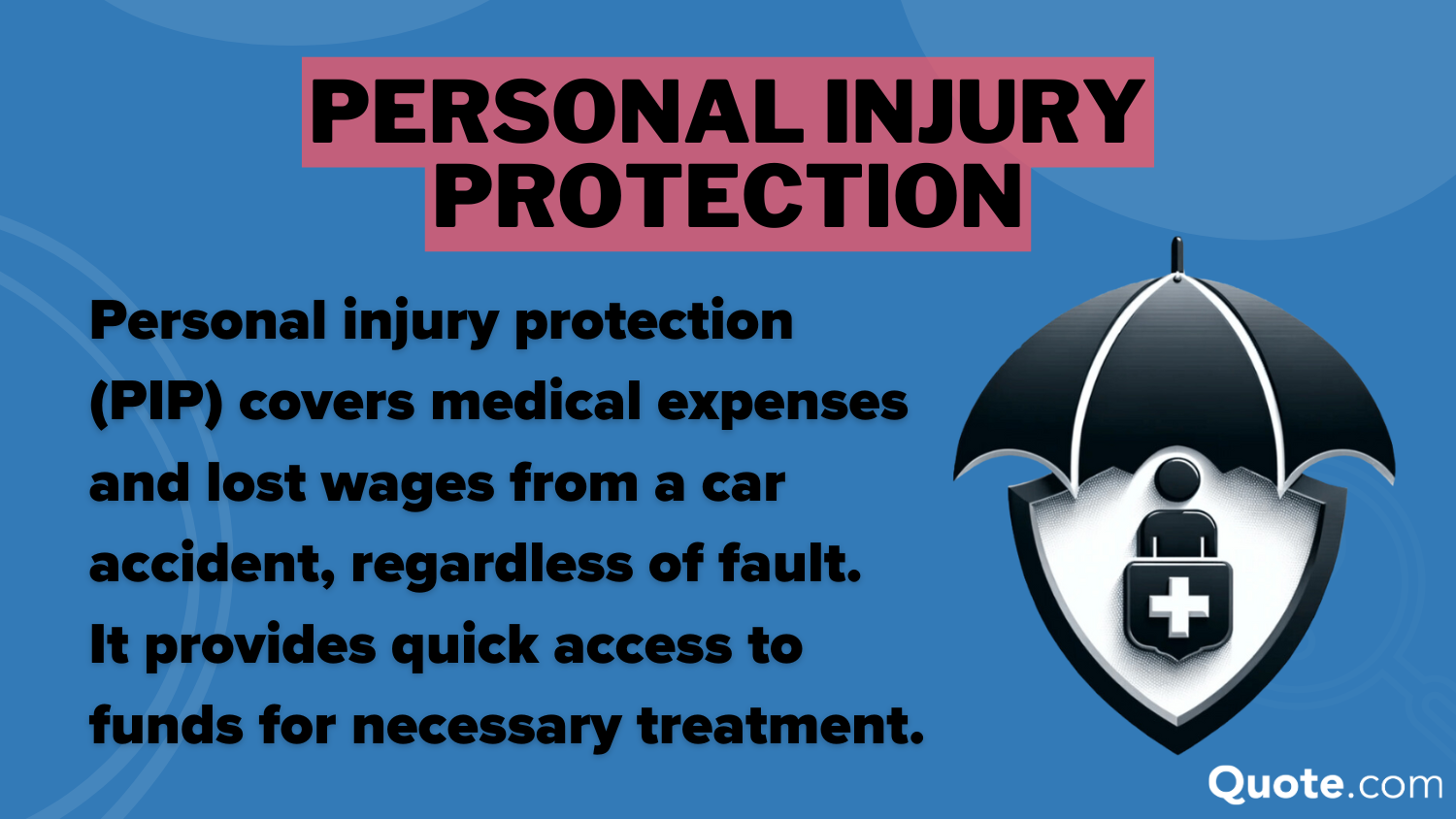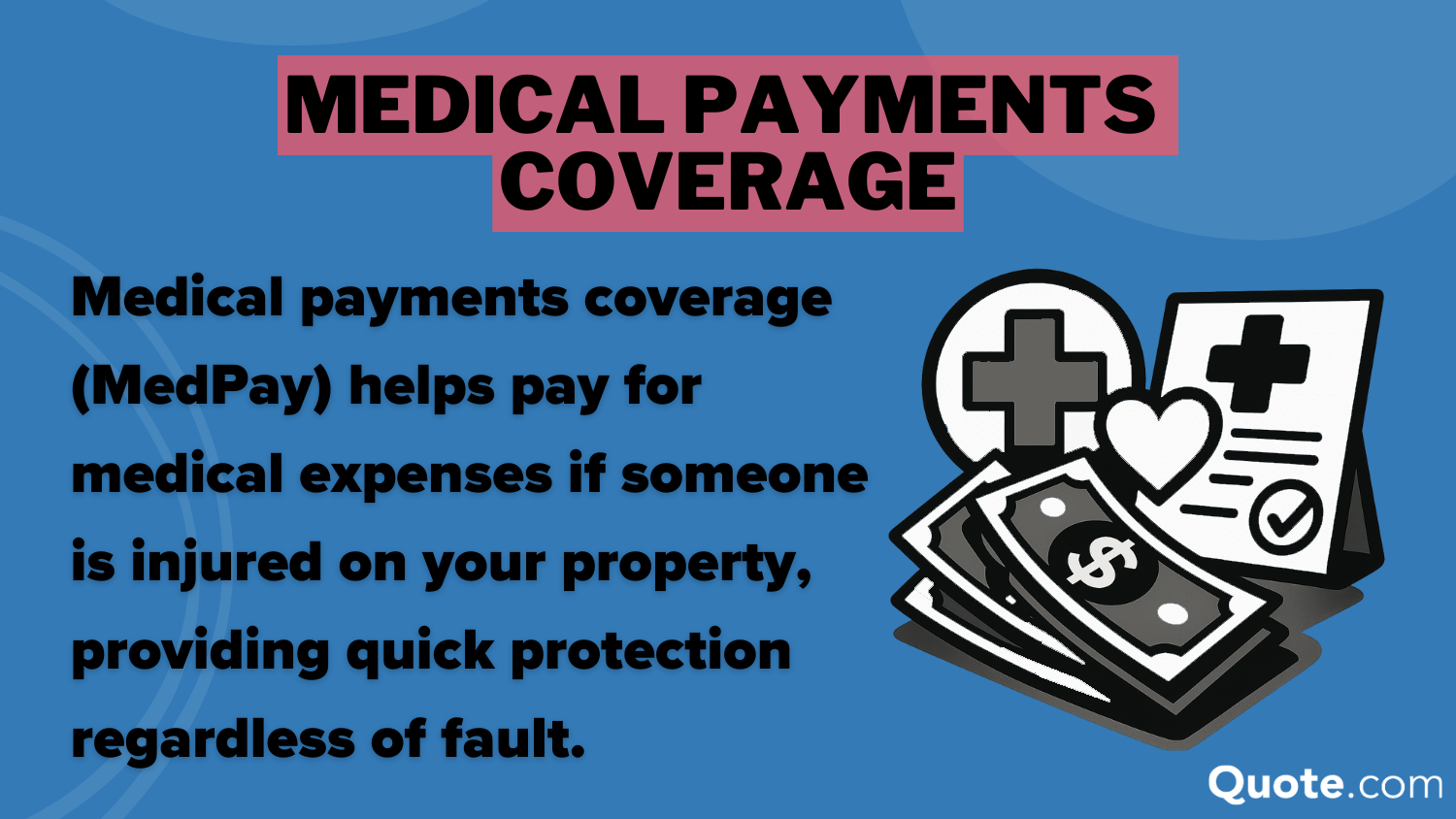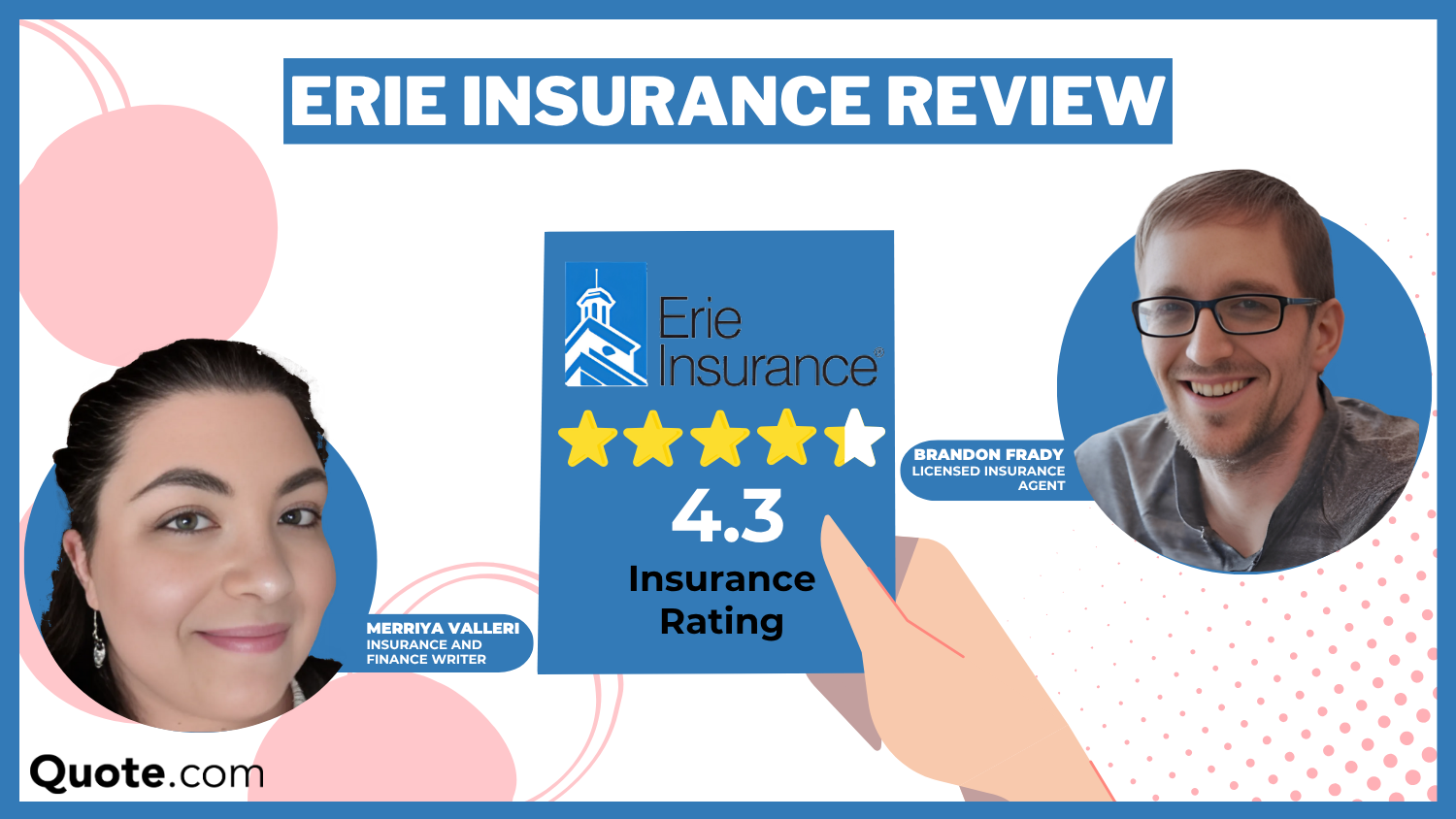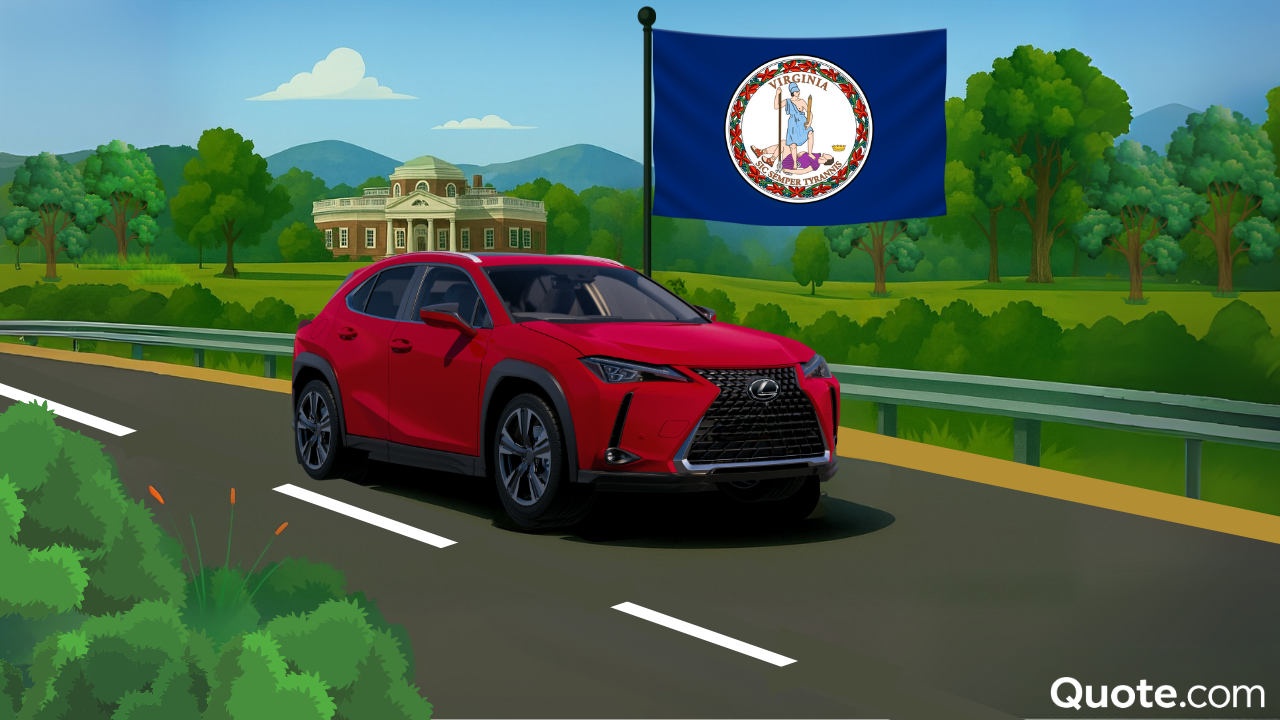Personal Injury Protection (PIP) Insurance: Coverage Explained
Personal injury protection (PIP) is essential auto insurance that covers medical bills, lost wages, and other related costs, regardless of fault. Available from USAA for as low as $10 a month, personal injury protection coverage goes beyond a health policy. Find out if PIP insurance is required in your state.
Read more Secured with SHA-256 Encryption




Table of Contents
Table of Contents


Insurance Claims Support & Senior Adjuster
Kalyn grew up in an insurance family with a grandfather, aunt, and uncle leading successful careers as insurance agents. She soon found she had similar interests and followed in their footsteps. After spending about ten years working in the insurance industry as both an appraiser dispatcher and a senior property claims adjuster, she decided to combine her years of insurance experience with another...
Kalyn Johnson


Senior Director of Content
Sara Routhier, Senior Director of Content, has professional experience as an educator, SEO specialist, and content marketer. She has over 10 years of experience in the insurance industry. As a researcher, data nerd, writer, and editor, she strives to curate educational, enlightening articles that provide you with the must-know facts and best-kept secrets within the overwhelming world of insurance....
Sara Routhier


Licensed Insurance Agent
Brad Larson has been in the insurance industry for over 16 years. He specializes in helping clients navigate the claims process, with a particular emphasis on coverage analysis. He received his bachelor’s degree from the University of Utah in Political Science. He also holds an Associate in Claims (AIC) and Associate in General Insurance (AINS) designations, as well as a Utah Property and Casual...
Brad Larson
Updated November 2025
Personal injury protection (PIP) provides crucial financial safeguards that many drivers overlook after a serious accident. PIP covers medical expenses, wage replacement, and essential services after accidents, regardless of who’s at fault.
- PIP pays for medical expenses, lost wages, and essential services
- Monthly personal injury protection insurance rates range from $10 to $21
- PIP policy limits complement existing health insurance coverage
When you compare auto insurance companies, you’ll find that USAA offers the most affordable PIP at just $10 per month. Keep reading to learn the differences between personal injury protection vs. bodily injury coverage and which states require PIP coverage.
This guide explains personal injury protection minimums and demonstrates how this coverage complements your health insurance for comprehensive protection.
If you’re looking to lower your auto insurance premiums, enter your ZIP code into our free quote comparison tool to compare your rates against top insurers.
Personal Injury Protection Insurance Explained
Personal injury protection is car insurance that helps cover medical expenses, lost wages, and essential services after an accident, regardless of who caused it. Often called “no-fault” coverage, it pays out quickly, so you can avoid delays tied to determining who is at fault.
A common misconception is that PIP replaces health insurance — it doesn’t. Instead, it works alongside it and may even cover things your health plan won’t. Unlike liability coverage, PIP directly protects you and your passengers. To better understand how it fits into your policy, check out our visual guide to auto insurance, which breaks down each type of coverage in simple terms.
Free Auto Insurance Comparison
Compare Quotes From Top Companies and Save
Secured with SHA-256 Encryption
Best Monthly Rates for Personal Injury Protection Coverage
Personal injury auto insurance costs less than $20 a month, with USAA, Geico, and State Farm each offering PIP insurance rates under $15 per month.
Personal Injury Protection (PIP) Monthly Rates From Top Providers| Insurance Company | Monthly Rate |
|---|---|
| $18 | |
| $15 | |
| $19 | |
| $11 | |
 | $21 |
 | $17 |
| $16 | |
| $14 | |
| $16 | |
| $10 |
USAA consistently receives high marks for its efficient claims process and broad PIP coverage options. You can get more details in our USAA auto insurance review, but look beyond premiums to find protection that fits your lifestyle and risk level.
Choosing personal injury protection involves more than comparing monthly costs. Your PIP insurance minimum might meet legal standards, but could fall short in real-life scenarios. Ask yourself, how much PIP coverage should you get to handle medical costs, lost wages, and other expenses after an accident?
PIP Compared to Other Insurance Options
Unlike comprehensive auto insurance and other policies tied to car repairs or even property damage liability, personal injury protection focuses on people, not vehicles or properties.
Personal Injury Protection (PIP) vs. Other Coverage Types| Coverage Type | Medical Bills | Lost Wages | At-fault | Property Damage |
|---|---|---|---|---|
| Personal Injury Protection (PIP) | ✅ | ✅ | ❌ | ❌ |
| Medical Payments (MedPay) | ✅ | ❌ | ❌ | ❌ |
| Bodily Injury Liability | ✅ | ❌ | ✅ | ❌ |
| Collision Coverage | ❌ | ❌ | ✅ | ✅ |
| Comprehensive Coverage | ❌ | ❌ | ❌ | ✅ |
| Health Insurance | ✅ | ✅ | ❌ | ❌ |
When comparing personal injury protection vs. medical payments, the differences go beyond medical bills. While MedPay offers quick access to treatment funds, it lacks the income replacement that sets PIP apart.
Personal injury protection bridges gaps that other policies don’t, making it a valuable layer of protection in your auto insurance strategy. In forums like personal injury protection on Reddit, users often highlight how helpful it is, not just for covering medical bills but also for rehab costs and even hiring help for everyday tasks if you’re injured.
Do I need PIP insurance if I have health insurance? Health insurance doesn’t replace income or cover essential services during recovery. PIP helps finance what your health insurance won’t cover, such as income loss or essential services during recovery.
Where PIP Insurance is Required
Understanding where you’re legally obligated to carry PIP can help you make smarter coverage choices. States with no-fault insurance laws require PIP to cover medical bills in an accident. These rules directly impact how quickly you can file an auto insurance claim and receive benefits without proving fault.
The no-fault insurance states below require PIP coverage, but other states offer it as an optional coverage. For example, personal injury protection in Texas isn’t mandatory, but it’s offered to drivers to help cover medical costs after an accident.
Personal Injury Protection (PIP): State Requirements| State | Minimum Coverage |
|---|---|
| Florida | $10,000 for medical expenses & death benefits |
| Hawaii | $10,000 for medical expenses & lost wages |
| Kansas | $4,500 per person for medical & disability expenses |
| Kentucky | $10,000 for medical expenses per person |
| Massachusetts | $8,000 for medical expenses per person |
| Michigan | $50,000 (or higher, depending on the policy choice) |
| Minnesota | $40,000 for medical expenses per person |
| New Jersey | $15,000 for medical expenses per person |
| New York | $50,000 per person for medical & funeral expenses |
| North Dakota | $30,000 for medical expenses & disability benefits |
Having this policy in a no-fault state ensures medical bills and other related costs are handled efficiently. It’s especially useful when paired with uninsured motorist coverage, which protects you if the at-fault driver lacks insurance.
Free Auto Insurance Comparison
Compare Quotes From Top Companies and Save
Secured with SHA-256 Encryption
Importance of Personal Injury Protection Auto Insurance
Personal injury protection provides essential coverage for medical expenses, lost wages, and services regardless of fault. With USAA offering the cheapest car insurance rates for PIP at just $10 monthly, this coverage remains accessible for most drivers.
PIP can help you recover faster by covering costs your regular health plan might not touch.
Scott Young MANAGING EDITOR
While required in some states with varying minimums of $4,500-$50,000, PIP complements your existing protection by covering costs after a collision that health insurance typically won’t.
Whether mandatory in your state or optional, PIP delivers invaluable peace of mind by protecting both you and your passengers after an accident. Explore your auto insurance options by entering your ZIP code into our free comparison tool today.

Frequently Asked Questions
What is Personal injury protection (PIP) insurance?
Personal injury protection (PIP) insurance covers medical expenses, lost wages, and essential services after an accident regardless of fault. Required in some states, it complements health insurance with rates starting at $10 monthly.
What is an example of personal injury coverage?
Personal injury protection (PIP) coverage pays for medical bills after an accident. For example, if you break your leg in a collision, PIP covers hospital stays, surgery costs, rehabilitation expenses, and even transportation to medical appointments.
Is PIP insurance worth it?
Yes, personal injury protection insurance is worth it as it provides immediate coverage for medical expenses and lost wages regardless of fault. In the worst states for filing an auto insurance claim, PIP ensures you receive benefits while fault determination proceeds.
How much does PIP pay you?
PIP payment limits vary by state and policy. Minimums range from $4,500 in Kansas to $50,000 in Michigan and New York. Coverage typically includes medical expenses, up to 80% of lost wages, and essential services during recovery.
Do you have to pay back PIP insurance?
Will your insurance go up if you use PIP?
Generally, your insurance rates won’t increase when you use PIP benefits for accidents where you weren’t at fault. However, at-fault accidents may affect your premiums when your policy renews.
How do personal injury claims work?
Personal injury claims begin by filing with your insurer after an accident. Unlike liability claims, PIP pays regardless of fault. Your insurer reviews medical documentation, approves eligible expenses, and issues payment according to policy limits.
What illness is covered by PIP?
PIP primarily covers accident-related injuries, not general illnesses. However, if you develop health conditions directly resulting from your accident, such as infection from injuries or PTSD, these may be covered when you’re denied insurance coverage for them elsewhere.
Is PIP a benefit for life?
No, personal injury protection insurance is not a lifetime benefit. Coverage ends once policy limits are reached or after a specified time period (typically up to three years after the accident).
How is PIP paid out?
PIP is typically paid directly to medical providers for treatment costs. Lost wage benefits are paid to you periodically, usually matching your normal pay schedule. Some insurers may issue lump-sum payments for certain benefits. Stop overpaying for auto insurance. Enter your ZIP code to find out if you can get a better deal.
What is the difference between personal accident insurance and personal injury insurance?
Get a FREE Quote in Minutes
Insurance rates change constantly — we help you stay ahead by making it easy to compare top options and save.








